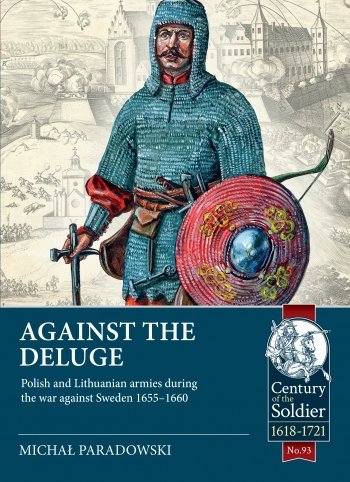-
Załączniki bezpieczeństwa
Załczniki do produktuZałączniki dotyczące bezpieczeństwa produktu zawierają informacje o opakowaniu produktu i mogą dostarczać kluczowych informacji dotyczących bezpieczeństwa konkretnego produktu
-
Informacje o producencie
Informacje o producencieInformacje dotyczące produktu obejmują adres i powiązane dane producenta produktu.HELION
-
Osoba odpowiedzialna w UE
Osoba odpowiedzialna w UEPodmiot gospodarczy z siedzibą w UE zapewniający zgodność produktu z wymaganymi przepisami.
In summer of 1655 Polish-Lithuanian Commonwealth, already engaged in bitter struggle against Muscovy and Zaporozhian Cossacks, was invaded by Swedes. It led to conflict called Second Northern War but in Commonwealth better known as ‘The Deluge’. After initial series of the lost battles, country was on the brink of total defeat, with Polish troops switching sides and King Jan II Kazimierz leaving the country. Gradually though, resistance against Swedish soldiers started to grow, with local partisans raising to fight in different regions of the country. Jan II Kazimierz returned to Poland and regular Polish troops abandoned Swedish side in waves. More countries joined the conflict, with Brandenburg initially allying with Sweden but then changing side again. Transylvania and Cossacks supporting Swedes, while Imperial and Tatars troops joined the Poles. Another front of war opened in 1658, with Denmark attacking Swedes as well. It was period of near constant war, usually on two or even three theatres of war at the same time.
This book presents in-depth study of both Polish and Lithuanian armies, fighting during ‘The Deluge’. It explains unique system of recruiting and organising troops in the Commonwealth, from regular army, through levy of nobility, to forces owned by king and magnates. Each formation, from famous winged hussars to ad hoc raised units of peasant partisans, is described with much detail. Authors presents command structure of Commonwealth’s military and its most important leaders. Logistical aspect of the warfare, from the way that armies were financed to how they were equipped, clothed and fed, are covered as well. Main battles of the war, including three-days long battle of Warsaw in 1656, are depicted in separate chapter, in the same way as chosen siege operations and very important descriptions of ‘small war’, so vital in defeating Swedes.
In writing this volume, author used large number of primary sources, both archival and printed, most of which were never before available in English. Amongst them readers can find diaries and letters written by both Polish and Swedish soldiers; also many important official documents, like muster rolls and army lists. He also utilised many important studies by Polish and Swedish researchers, that covered many aspects of the conflict, which was always very important in Polish historiography. Associated iconography was chosen with great care, to present depiction of the commanders, troops and battles, all from period; also showing number of Polish and Lithuanian flags that survived in Swedish collections.










